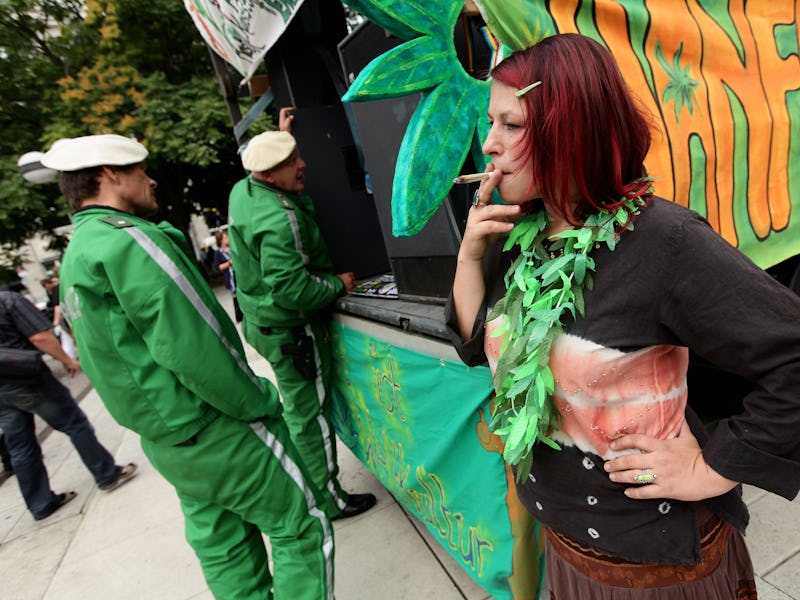South Dakota to Open America's First Marijuana 'Playground'
The Department of Justice first cleared the way for such an endeavor in December 2014

America’s first marijuana vacation spot is coming to the Santee Sioux tribe’s reservation in South Dakota. The Flandreau-based tribe’s newest business will begin on December 31 — at a New Year’s Eve party.
The Santee Sioux’s will be the first reservation in the country to offer a “marijuana resort.” The Department of Justice first cleared the way for such an endeavor in December 2014 when it ruled that tribes could legalize marijuana, so long as they followed the same protocol outlined as weed-legal states like Colorado and Washington.
The Santee Sioux jumped on the opportunity in June, announcing that the tribe had legalized marijuana for use and sale. At the time, tribal president Anthony Reider said both Native Americans and non-Native Americans could enjoy the weed, so long as they did so on a designated area of the reservation.
South Dakota Attorney General Marty J. Jackley, however, suggested that it would still be illegal for non-Native Americans to consume, as it is illegal in the state. Nevertheless, the Department of the Interior tells us:
“Tribes…possess the right to form their own governments; to make and enforce laws, both civil and criminal; to tax; to establish and determine membership (i.e., tribal citizenship); to license and regulate activities within their jurisdiction; to zone; and to exclude persons from tribal lands.”
Additionally, “Because the Constitution vested the Legislative Branch with plenary power over Indian Affairs, states have no authority over tribal governments unless expressly authorized by Congress.” In short, Jackley can’t do jack-shit about the planned “adult playground,” as Reider calls it.
Legalizing and promoting marijuana is good business for Native American tribes. The Santee Sioux project that it will bring in up to $2 million per month. Gaming was once a cash cow that tribes could rightfully exploit, but profits are not there like they once were. Offering a place to smoke marijuana recreationally could be a smart way to improve the local economy and serve as yet another testing ground for broader legalization.